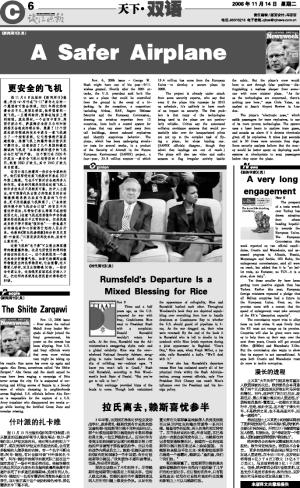Nov 9
Three and a half years ago, as the U.S. prepared for war with Iraq, Condoleezza Rice went to President Bush with a complaint: Donald Rumsfeld wouldn't return her calls. At the time, Rumsfeld was the Administration's swaggering alpha male and a global celebrity. Rice was the overwhelmed National Security Adviser, struggling to make herself heard above the din of colliding war-cabinet egos. "I know you won't talk to Condi," Bush told Rumsfeld, according to Bob Woodward's book State of Denial. "But you've got to talk to her."
That exchange provided hints of the feuds to come. Though both maintained the appearance of collegiality, Rice and Rumsfeld loathed each other. Throughout Woodward's book they are depicted squabbling over everything from how to handle detainees at Guantanamo Bay to whether the U.S. should guard oil pipelines in Iraq. As the war dragged on, their roles were reversed: By the end of the book it is Rumsfeld who is left to doodle in his notebook while Rice briefs reporters during a joint appearance in Baghdad. "Don's Don," Rice says, when Frank Miller, a top aide, calls Rumsfeld a bully. "We'll deal with it."
Now she has. Rumsfeld's departure means Rice has outlasted nearly all of her principal rivals within the Bush Administration; among current officials, only Vice President Dick Cheney can match Rice's influence over the President and his foreign policy.

